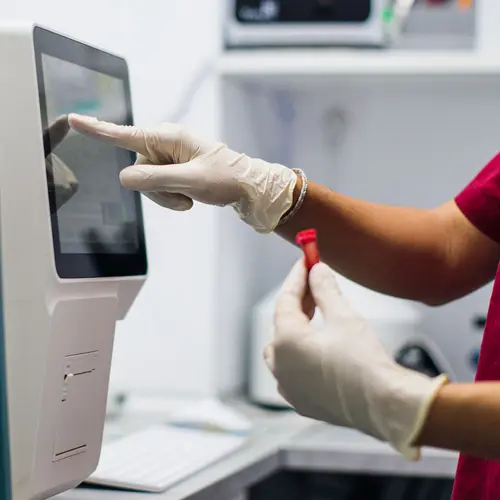If you have Crohn’s disease, a doctor may have warned you at some point to avoid nonsteroidal anti-inflammatory drugs (NSAIDs) like aspirin, ibuprofen, and naproxen. The common wisdom is that these painkillers can make your condition worse. But the link between Crohn’s and NSAIDs isn’t clear-cut.
The American College of Gastroenterology recommends that people with Crohn’s avoid NSAIDs when possible because they could cause symptom flare-ups as well as stomach or intestinal ulcers. Using NSAIDs raises your risk of an emergency hospital admission for your Crohn’s.
But some research findings conflict with these guidelines. One review of multiple studies found no consistent link between NSAIDs and Crohn’s disease flare-ups. Some studies in the same review did show an association, though. Often, just stopping the NSAID was enough to make the flare go away.
For aches and pains, most doctors recommend taking acetaminophen instead of NSAIDs if you have Crohn’s. But many people with Crohn’s take NSAIDs anyway, and some research suggests that low doses (fewer than five times a month) don’t cause problems.
How Do NSAIDs Work?
Conventional NSAIDs work by blocking an enzyme called cyclooxygenase (COX) involved in inflammations. Blocking one form of the enzyme (COX-2) has anti-inflammatory and pain-relieving effects. Blocking the other (COX-1) does the same thing, but is more likely to cause gastrointestinal problems and even bleeding in the digestive system.
Do NSAIDs Cause Crohn’s?
Taking NSAIDs has been linked to a higher risk of developing inflammatory bowel disease (IBD), which includes Crohn’s. Using NSAIDs regularly doesn’t seem to cause Crohn’s disease. But it can cause a flare if you already have the condition, and raises your risk of being admitted to the hospital. So it makes sense to avoid them if you can.
Even people who don’t have Crohn’s are at increased risk of digestive problems and stomach or intestinal ulcers when they take NSAIDs.
Can NSAIDs Make Crohn’s worse?
Yes, but it’s complicated. Your risk seems to depend on the dose of NSAID you’re taking. High doses have been linked to more Crohn’s symptoms. Taking NSDADs often is also linked to more flare-ups.
Some people take them because their Crohn’s is already flaring and causing joint or belly pain. In that case, the NSAIDs are more a result of pain than the cause.
How Do NSAIDS Make Crohn’s Worse?
We don’t know exactly how NSAIDs trigger flare-ups. One theory is that they limit the production of protective substances in your digestive tract (called prostaglandins). Another is that NSAIDs may delay healing that needs to take place when your intestines are inflamed.
Types of NSAIDs that block just the COX-2 form of the cyclooxygenase enzyme (COX-2 inhibitors), may be less likely to trigger flare-ups of IBD, including Crohn’s disease. But it’s not clear that COX-1 alone is to blame for Crohn’s flares that are caused by taking NSAIDs.
What Painkillers Can You Take With Crohn’s Disease?
To make sure you get the right treatment, talk with your doctor about the location of your pain, how much it hurts, what it feels like, and how long it’s been hurting. This will help them determine the best pain management plan for you. Be sure they know about any other medical conditions you may have.
If you have arthritis in addition to Crohn’s disease, your doctor may recommend NSAIDs, even with the risk that they could cause a flare, because they’re very effective on pain.
Your doctor may recommend COX-2 inhibitor NSAIDs, especially if you have debilitating arthritis. But these drugs may pose risks to your heart, and we don’t know much about the long-term use of them in people with any type of IBD.
You can treat pain from Crohn’s disease or from other sources with acetaminophen (Tylenol) or with these prescription medications:
- Antispasmodics
- Tricyclic antidepressants
- Selective serotonin reuptake inhibitors (SSRIs)
- Selective norepinephrine reuptake inhibitors (SNRIs)
- Atypical antidepressants
- Atypical opioids
- Anticonvulsants
Opiates like hydrocodone can treat serious pain for a short time, but can cause serious side-effects if taken long term. People with Crohn’s who take opiates tend to have worse pain and are twice as likely to require surgery later. Side effects may include constipation and narcotic bowel syndrome, a type of belly pain that gets worse when you take higher doses. These drugs also carry a risk of misuse and addiction.
If you have depression, like many people with Crohn’s, opiates aren’t the best option. Research shows you may be more likely to misuse them.
Other alternatives include:
A multidisciplinary approach to treating pain might include aerobic exercise, physical therapy, medication, and psychotherapy. Anxiety and depression often go along with Crohn’s, so a psychiatric evaluation, and treatment with an antidepressant may help with pain as well.
Mindfulness-based therapy (a type of cognitive behavioral training or CBT) can be helpful.
Medical cannabis can help with pain relief, but there’s no data on whether it’s safe to use long-term.
An anti-inflammatory diet might lower the risk of flare ups and reduce pain from Crohn’s. This type of diet is high in fiber, vitamins, zinc, magnesium, omega-3 fatty acids, and polyunsaturated fats, and low in total fat and saturated fat.
Also, if you smoke, stop. People who have Crohn’s and smoke are more likely to need surgery, be hospitalized, and get arthritis than those who don’t smoke. If you quit, you’ll probably have fewer flares and may need less medication to control your Crohn’s.

